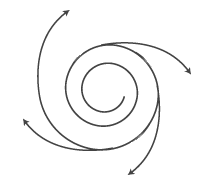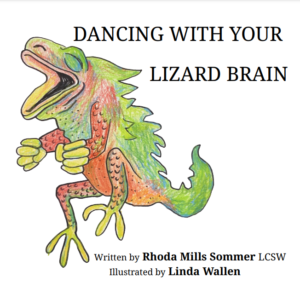
Relationships are complicated. What is a relationship? The core of love is being able to authentically be yourself with someone else and being able to open yourself up to change and growth over time with that other person.
This is why love in relationships depends on trust and honesty. Growth and change are very fearsome directions that can only happen if there is respect. In the movie As Good as it Gets, Jack Nicholson’s character tells Helen Hunt’s character, “You make me want to be a better man” – and it’s the best compliment she has ever had. That scene captures the purpose of love.
When relationships work, we teach each other to be better people. That’s what relationships are really all about.
We partner up with who we imagine the other to be and then too often we are ready to quit in years 6-10 without enough effort at solving the troubles. (see Projections on this web site) Relationships can recover from dishonesty. Relationships do not recover from loss of respect.
Ask yourself, “In my heart, do I respect my partner?”
Affairs/Infidelity:
Affairs are symptoms of problems in relationships. Couples are most often in trouble because they have deflected and avoided dealing with the problems. They stop talking to each other in any real way until they are ready to go and it is too late.
It is crucial that the partner who has been betrayed by an affair not move into too high a degree of self-righteousness. Trade self-righteousness in for self examination. For example, even if there is a long history of affairs, take ownership of your obliviousness.
Two problems underneath affairs that must be solved to improve relationships: 1) The one who had the affair wants out 2) The one who was betrayed wants penance. A good book that examines marriage and affairs would be
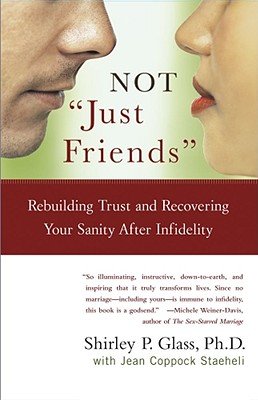 Not “Just Friends”: Rebuilding Trust and Recovering Your Sanity After Infidelity by Shirley Glass.
Not “Just Friends”: Rebuilding Trust and Recovering Your Sanity After Infidelity by Shirley Glass.
For blog posts on Affairs click here.
Anthropologist
Helen Fisher
has studied love for more than 30 years. In this TED talk she is quite clear it is possible to love more than one person at a time:
Communication Difficulties in Relationships:
Problems in life are all about the extremes. The communication pattern of most couples is either to be silent & avoid or be angry & dumping.
How to talk in the middle ground to solve problems is a mystery in most relationships. Avoiding the sweet spice of conflict is a mistake, conflict does not have to be ugly. In fact, conflict is growth trying to happen. Our culture values individualism so highly that we often don’t ask ourselves how much accommodation can you each risk?
Balancing both conflict and accommodation is a tricky business in relationships.
It takes a massive amount of dialogue to stay respectful of differences and to solve the problems that are in between both people. It is only through talking, talking, talking & talking some more that we can begin to truly see each other. Accurately understanding someone else’s priorities takes time.
We have to make time in our frantic lives to make communication work for better relationships.
People often translate the idea of “not wanting to hurt someone” into an excuse for taking the short term easier path of silence. Switch into the long term approach of teaching someone else who you really are, that’s the work of relationships.
The goal in relationships is for dialogue instead of truncated, parallel monologues which are far less interesting.
Dialogue is more scary in relationships because it means you are open to change, more vulnerable and are willing to be disagreed with.
One of the reasons the TV show West Wing was such a hit is because it offered that rare commodity of real dialogue. Characters were often changed by each other’s perspective which was so much more juicy & three dimensional than the cardboard characters of other shows.
One of the things I have realized – and people who have been married a long time realize – is that marriage is not a love affair. A love affair has to do with immediate personal satisfaction. But marriage is an ordeal; it means yielding, time and again. That’s why it’s a sacrament: you give up your personal simplicity to participate in a relationship. And when you’re giving, you’re not giving to the other person: you’re giving to the relationship. And if you realize that you are in the relationship just as the other person is, then it becomes life building, a life fostering & enriching experience, NOT an impoverishment because you’re giving to someone else.
– Joseph Campbell
The Space Between People in Relationships
This is the space between people. It could be divided up in many ways.

Often the space is divided up like this:

This is how it looks in relationships when one person takes up too much space and one person takes up too little. Another way to picture this energy is this:

Too Little (above): These people tend to be too “other focused” in relationships. They are good caretakers. Too Little people tend to be people pleasing and codependent or mushballs who go along with other people’s agendas and lose track of their own. Too Little people overly value looking like the ‘nice one’ to the outside world. Learn from the Too Much people to speak up and learn your wants.
Practice: Try naming small wants off a menu at a restaurant, medium wants by planning the weekend’s entertainment, or large wants by choosing where the family vacation will be. Learn to see and be yourself more. Stop enabling others to erase you. Read Codependent No More: How to Stop Controlling Others and Start Caring for Yourself and Codependent No More: Beyond Codependency by Melodie Beattie.

Too Much (above): In relationships these people tend to be too self-focused, good at defining themselves. Too Much people tend to interrupt, be rude or full of themselves. Your agenda is not the only one that matters. Access empathy for others. Learn from the Too Little people to sacrifice, edit and back up. Listen.
Practice: Try really seeing and hearing others. Reflect back what you hear to see if you really know where they’re coming from. Put your hand over your mouth so you don’t interrupt. Negotiate and make fair deals instead of riding roughshod over others.
BOTH: BOTH “Too Much” and “Too Little” are two different styles that cover up insecurities in relationships. Bluster, Huff & Puff or Hiding & Passivity are two different defense systems. Both are struggling with fears of how to define themselves to navigate relationships. Both are problematic conclusions because they are too lopsided in the chosen style.
Achieving More Range in Relationships
The downside of “Too Little” is that they can be anxious and fearful — sometimes inadequate and boring. The downside of “Too Much” is that they can be too full of themselves, too excited, sometimes arrogant or obnoxious.
Just as the polarities of fear and excitement always travel together to increase the possibilities of emotional range, often the opposites of too much and too little attract in relationships. This is because we are supposed to learn from each other and grow.
The “Snail” (too little) needs a few arrows outward and the “Arrows” (too much) need to be pulled in. Growing up is taking greater responsibility to have more range. The goal is to respect and value both, to have more range to who you are:
The Snails become able to take care of themselves and redefine “selfish” as “defining oneself more clearly.” The Arrows learn to edit, to see others more carefully, recognize “enough” as a new language to learn.This creates growth for both and improves relationships because their is more respect for both ways of doing things.
This final drawing uses arrows to define the growth and change for both Too Much and Too Little:

Two “Too Littles” can flatline in life too easily. It is crucial that they learn to enlarge their world through curiousity and imagination. They must support each other to be bolder. An example of this can be found on the television show “Monk” (the way detective Monk is supported by his female sidekick). This relationship often occurs later in life when both individuals have been mistreated by previous partners and this dynamic offers a safe haven.



Two “Too Muchs” are couples I privately refer to as couples who put my head in a vice. They both fill up the room with their own agenda and each wants to be told they’re the one who is right. They are two fortified castles with very little interest in changing themselves. Throw drugs and alcohol into the mix and it can get very ugly.
Frida is a wonderfully visual movie that captures a relationship where there are two “too much’s” in a relationship.
Repair
“You don’t repair that relationship by sitting down & talking about trust or making promises. Actually, what rebuilds it is living it & doing things differently- and I think that is what is going to make a difference. – Patricia Hewitt
It is normal to have trouble and breakdowns in all relationships. In fact, a relationship hasn’t really been tested until the process of resolving trouble has occurred.
A willingness to repair relationships is crucial in partnership, parenting, and friendship. It is a position showing greater class if you can reach out, be willing to learn something new, and take responsibility for hurting another.
Since parenting and marriage are 24/7 jobs, it is impossible not to screw up. Taking ownership of screwing up is often all that one can do, and that is exactly the right way to create solid trust and greater potential for truth.
Making amends is a wonderful part of AA/NA. Taking time to write someone a letter acknowledging past misdeeds is something that benefits everyone.
As Al Pacino says in his speech in the end of the movie Scent of a Woman, “The right thing to do is the hard thing to do.” Make repairing relationships something that you seriously embrace because it matters more than you realize instead of being emotionally lazy.
Unhappy Partnerships
Let’s use Former President Bush and Al Gore as an example of an unhappy partnership. Bush is Too Much and Al Gore is Too Little. It is my belief that Former President Bush is better at making statements and Al Gore is better at asking questions. If Bush, flush with the success of winning, had invited Al Gore to be a part of his cabinet in an effort to value the support of 50% of the country, he would have created more opportunity for dialogue. (Of course, this would also have applied to Gore if he had won.) It is a statement about our culture’s simplicity that the complexity of having the “loser” as part of a cabinet is a laughable fantasy, though in TV Land, Martin Sheen did hire a republican because a great leader can be disagreed with.
There are 5 values that are crucial to making relationships work.
1. Respect
Too Little’s need more self respect.
Too Much’s need more respect for others.
Respect is the most crucial ingredient in marriage. If mutual respect is not a part of the relationship, I often hear the death bell toll.
In a 1995 workshop, Olga Silverstein discussed a stuck pattern she often sees in her work. The woman refuses to have sex with the man she doesn’t respect. The man finds that the only way to be a man and feel some measure of self-respect is not to follow her direction. This is a very sad paradox that is all too common.
2. Be Able to Talk About Hard Things
Numerous conversations to soften the differences between people is a basic requirement for relationship longevity.
3. Openness to Change
A foundation of respect can lower the fear factor.
Learning from the differences makes life so much more interesting. No one has a corner on the “this is how to live” market. There is merit and weakness to all polarities i.e. –
Learning how to fit in and value appearances vs. being feisty and caring less what others think.
Respond by allowing your partner’s opposite point of view to emerge instead of reacting or erasing.
4. Fairness
Too Much’s need to recognize when they are being unfair.
5. Say What You Mean, Mean What You Say
Too Littles in particular need to pursue this, however everyone benefits from this. For example, if you don’t know if you’ll be home by 8, say what’s real. If you are afraid to say it, then there is a power dynamic problem.
Partners get hardened and calloused when they don’t feel seen. The most important thing you can do in a values collision is to talk and talk and talk and talk and talk about it to keep softening it. Couples therapy supports this process. The therapist is the grease that prevents the conversation from becoming emotionally hijacked.
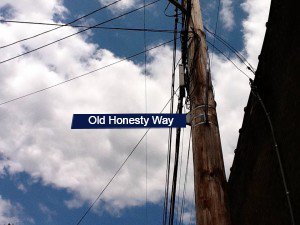 An exercise that teaches greater elegance is to acknowledge the other person’s point of view first regarding a difficult issue as a way of demonstrating that you know what’s important to them.
An exercise that teaches greater elegance is to acknowledge the other person’s point of view first regarding a difficult issue as a way of demonstrating that you know what’s important to them.
Another exercise is to think about how you give to your partner. We usually give each other what we want to receive. Instead give the other what they want.
Unsure if you should leave? Try reading this:
Too Good to Leave, Too Bad to Stay: A Step-by-Step Guide to Help You Decide Whether to Stay In or Get Out of Your Relationship by Mira Kirshenbaum
The Power Struggle in Relationships
There is the obvious problem of: Too Much – constant demands; insistence on the right to know how things should be; expectations tend to be both unreasonable vs. Too Little. When disappointments are silently tallied they become exaggerated, the passive aggressive power of avoidance and deflection. Unshared information is unshared power; it is side stepping and wants must be solved more directly to have successful relationships.
These two dynamics are found in relationships & people end up stuck with solutions nowhere in
sight. This power dynamic also feeds the victim, rescuer, persecutor game. (Illustrated in the Manipulation section) Both of these positions are ripe for full steam ahead manipulation.
Codependency involves a power struggle in relationships. Codependency in partnerships is where one is the wise caretaker and the other is helpless. Neither of these positions is respectful. As one of my clients said “It was a lousy way to relate to people because I didn’t allow her to be strong, and it made me a wreck to try so hard.”
Making deals in relationships involves thinking about the “us” of a couple. It is a
third entity beyond the “I of the Too Much” or the “You of the Too Little”. Let’s take the issue of coming home for dinner. Solve which are the 3-4 nights to be home and which are the 3-4 nights of latitude. Decide it weekly if your schedule is unbearably frantic.
Solutions and the ability to negotiate are very important adult
skills. Temper tantrums and manipulation should only be occasional, not a pattern of how two people interact.
Intimacy in relationships requires shared power. That is why hierarchical love relationships often do not endure over time. An emblematic example of this would be the relationship between The professor and the awestruck student. Mutual respect means a willingness to share power.
Here is a quick exercise that gives you a picture of the power dynamic in your relationship:
Have each partner draw a circle. In blue ink define the ways you have power in the relationship. In black ink define the ways the other person has power in the relationship. Keep in mind that there are many ways to have power. These include who makes financial decisions, who does or doesn’t do chores, who disciplines the kids, who decides where to go on vacation, who is in control of whether or not to be social, etc. Keep in mind the person who wants sex the least has the most sexual power.
The partner with the greatest integrity (a kind of power that may or may not be valued in the relationship) is the one who is willing to acknowledge that they were wrong instead of insisting they were right. A partner who is willing to build a bridge over to the other and acknowledge the differences is very classy. Personal defensiveness only interferes with bridging or repairs. A willingness to bridge and consider repair is a very important power to recognize in a relationship. John Gottman, Ph.D. is well known for 24 years of research in marital stability. John Gottman defines ugly power with the label “the four horsemen of the apocalypse of marriage:”

1) Contempt
2) Hostile criticism
3) Denial
4) Withdrawal
Please take a look at his web site Gottman.com
People in sucessful marriages learn how to solve conflict and support their partner. Do you know how your partner defines support or do you only know what you’ve decided is supportive?
Men define support as being there, while most women want more overt support. Two-thirds of divorce are initiated by women. Often the emotional divorce happens years before the legal divorce.
Money can be a real source of power plays in relationships. If one partner wants financial autonomy in a marriage, that can be balanced with an account where money is merged. An account where the partner who makes twice as much, makes a twice as much contribution i.e. 600 dollars for every 300 dollars the other partner contributes. This account would be one way to defuse the power.
Men still carry the cultural expectation of being the provider. Relationships where the man makes less money than the woman often have greater struggles. A useful book to look at money issues is Money Harmony by Olivia Mellan.
All relationships have a chance at being an authentic dyad if both people risk more honesty. When energy goes back and forth to accommodate both of their differences, it is a more complex relationship and more often satisfying for longer to both because there is greater opportunity for dialogue.
A majority of relationships more often have a power dynamic that Fritz Perls referred to as:
Depressed energy and silence feed the Underdog position. Many relationships mirror this second arrangement, in which the Underdog enables by hiding in the “presumed safety” of being silent and unknown. This proven dynamic is much less interesting, though it is less work and more simplistic. The Top Dog tends toward monologue and being self-serving, making convenient assumptions about the other. Ask yourself, “Have I swallowed too much and cooperated in keeping myself invisible?”
If manipulation to be “Top Dog” is a constant in your relationship, most likely you are involved in The Karpman Drama Triangle described on the Relationship Triangles page of this web site.
You Want Your Partner Back
(More than anyone could ever understand) If this is true you would be the “Pursuer”. The psychological profile of the Pursuer is “I’ll do anything if you’ll only return,” so they’re heavily into begging. The pursued only wants out, feels mistreated and invisible, and is heavily into blaming. This pattern of begging and blaming tends to be dead in the water, going no where.
If you really want someone back, you will discover that chasing after them does not work because they run further away.
Even though this does not work, Pursuers continue to Pursue. The Pursued feels suffocated by the chase and continues to run away. There is a solution that will be very hard to bear or put into practice. It is the ONLY way to succeed.
The Pursuer Must Back Up!
Backing up feels impossible because it is the opposite of what you want. Being able to take action in the opposite direction of what you want is a sign of growing up. Wisdom is the understanding of paradox in life. If the person you love is feeling chased, you must learn to value their experience instead of insisting on your own needs.
The Pursued is already feeling that they are not truly “seen” by the
Pursuer. Then the Pursuer proves this to be true by ignoring the fact that the Pursued feels stifled and unknown. Backing up offers the Pursuer the opportunity to have more perspective and to begin to see the Pursued more clearly. If you are a Pursuer, ask yourself: How have you missed out on respecting and repairing the relationship?
Face these truths and don’t add to the pile of your mistakes. Don’t make excuses or false promises. If you back up from your yearning, then you stand a chance of winning the Pursued back rather than chasing them away. In fact, the Pursued and Pursuer will switch positions (I guarantee it IF it’s a situation where there is real hope). If you truly feel “unable to back up,” you are obsessed. **Please read obsessiveness on the anxiety page of this web site.
It would be wise to remember these words from Carl Whitaker, a famous family therapist, “Hope is often disappointment deferred.”
Breaking-Up and Making-Up in Relationships
Many couples have a pattern of getting together and breaking up over and over and over again. This pattern is often driven by insecurities; it’s one way to create drama. Drama is often a substitute for the fundamentally hard work of making room for differences in relationships. This is a simple suggestion for couples with this pattern; don’t return to each other’s arms without each agreeing to two improvements and then take action on those two improvements. Then “walk the walk, don’t just talk the talk” to borrow a valuable phrase from AA.
Differences in Relationships
Men have a tendency to want to fix tears or problems with solutions. This is depicted in the film treasure White Men Can’t Jump when Rosie Perez asks Woody Harrelson to understand her thirstiness without getting a glass of water and he is completely baffled. Many times women are really looking for a witness when they are troubled. They want silent listening, perhaps a warm gesture and they are not ready for action. So men might teach themselves to be a witness instead of an action hero. Witnessing can be far more profound and powerful than it may feel.
Another common gender difference is that men get overwhelmed and women will keep pounding their point home or pile on more issues. Women often do not recognize that men are flooded out with too much information.
Men are often oblivious, which can drive women crazy. It’s important to recognize obliviousness can be a strength, like a raincoat in a storm. Women can get very frustrated by obliviousness, and very wrapped up in absorbing details. For example, knowing the kind of underwear the other woman wore is not really a good piece of information to have. It may become a burden that one obsesses over, ending up in the need to extract penance. Women often have anniversary reactions for two or three years after an affair has been discovered. If men prepared themselves to expect this, it would be helpful.
Emotional honesty in relationships requires conflict and disagreements, which add spice to a relationship. Our culture has it all backwards; we don’t tell the truth, using the excuse of not hurting others. Politeness builds a measure of comfort that can be dangerous to the true wrestling of differences that intimacy requires. Remember that conflict is a sign of growth. If there is no disagreement be on the lookout for a codependent relationship instead of an authentic loving relationship. (See description of codependency under anxiety on this web site).
Keep in mind what John Gottman, a researcher on marriage, says, “Some irreconcilable differences take years to solve.” Stay honest and value the process.
Parental History & it’s Impact on Relationships
If you are a heterosexual female, your relationship with your father is the template for your choice in men. Pick three adjectives to describe your relationship with your father. Do any of the three apply to the relationship with your current partner? If you are a heterosexual male, pick three adjectives to describe your relationship with your mother.
A book that explores this in greater depth is Getting the Love You Want: A Guide for Couples, 20th Anniversary Edition by Harville Hendrix. He includes a number of exercises. Try to envision these exercises as a way to help you and your partner begin to imagine your future.
An example of how family history might play out would be a man who doesn’t cooperate with chores because he’s afraid of being a wimp like his dad. She ends up not respecting him because she defines chores as a way to care for her.
It’s a good idea to think about your family of origin – Every family has strengths and weaknesses. Ask yourself: how did you know you were loved? Even though I never remember hearing the words, “I love you” from my father’s German stoic self, I knew I was loved. Think about how you learned to behave in your family and the messages you received about relationships.
Consider how people in your family respond to good news. In 2004 Shelly Gable, an Assistant Professor of Psychology at UCLA, has done research that proves an enthusiastic response to good news contributes to a good marriage. So, if not noticing or attending to good news was a stoic family trait, it is a habit carried into new relationships that can be destructive instead of constructive.
Movies About Relationships
 Blue Valentine (2010)
Blue Valentine (2010)
Read a review of this movie on my blog
 The Kids Are All Right (2010) A lesbian couple struggles when one has an affair. Julianna Moore gives a great speech about the work of marriage when she apologizes to the family.
The Kids Are All Right (2010) A lesbian couple struggles when one has an affair. Julianna Moore gives a great speech about the work of marriage when she apologizes to the family.
 The Painted Veil (2006) A marriage that begins badly because Edward Norton loves her and she does not. She is spoiled and unhappy in 1938 China where there is a cholera epidemic and political unrest. She commits adultry and he carries her punishment too far. Then they both recognize they “looked for qualities each other never had.” This honesty begins their emotional recovery.
The Painted Veil (2006) A marriage that begins badly because Edward Norton loves her and she does not. She is spoiled and unhappy in 1938 China where there is a cholera epidemic and political unrest. She commits adultry and he carries her punishment too far. Then they both recognize they “looked for qualities each other never had.” This honesty begins their emotional recovery.
 We Don’t Live Here Anymore (2004) Two couples have reached the 10-year mark and both dissolve into lust, anger, and longing. The New Yorker called it the best movie of the year and described the characters, “At heart, they are moral people and misbehaving takes a lot out of them.” Laura Dern gives an outstanding performance. Consequences are depicted without any easy outs. Thinking of having an affair? Watch this first…
We Don’t Live Here Anymore (2004) Two couples have reached the 10-year mark and both dissolve into lust, anger, and longing. The New Yorker called it the best movie of the year and described the characters, “At heart, they are moral people and misbehaving takes a lot out of them.” Laura Dern gives an outstanding performance. Consequences are depicted without any easy outs. Thinking of having an affair? Watch this first…
 All or Nothing (2002) Wonderfully grim movie that captures the slow erosion of a family when respect for each other has been lost. The British director Mike Leigh believes that people can be terribly honest, face the truth, and turn their lives around. This is really what the process of therapy is about.
All or Nothing (2002) Wonderfully grim movie that captures the slow erosion of a family when respect for each other has been lost. The British director Mike Leigh believes that people can be terribly honest, face the truth, and turn their lives around. This is really what the process of therapy is about.
 A Walk on the Moon (1999) A wonderful movie that demonstrates repair is possible after an affair. Watch the last scene when Diane lane and her husband are dancing on the porch. They play his favored old-fashioned music and he reaches over to change the station to her 1960’s music, acknowledging that she can influence and change him.
A Walk on the Moon (1999) A wonderful movie that demonstrates repair is possible after an affair. Watch the last scene when Diane lane and her husband are dancing on the porch. They play his favored old-fashioned music and he reaches over to change the station to her 1960’s music, acknowledging that she can influence and change him.
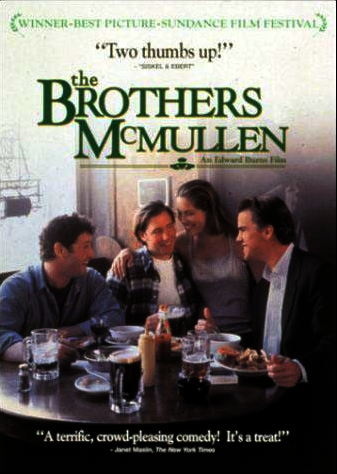 The Brothers McMullen (1995) This movie is about three Irish, Catholic brothers struggling with marriage in Long Island. They grew up in the shadow of their parents’ abusive, unhappy relationship and they want to be different.
The Brothers McMullen (1995) This movie is about three Irish, Catholic brothers struggling with marriage in Long Island. They grew up in the shadow of their parents’ abusive, unhappy relationship and they want to be different.
Books on Relationships
The ADHD Effect on Marriage: Understand and Rebuild Your Relationship in Six Steps by Melissa Orlov
After the Affair: Healing the Pain and Rebuilding Trust When a Partner Has Been Unfaithful by Janis A. Spring is another book to consider.
Getting the Love You Want: A Guide for Couples, 20th Anniversary Edition by Harville Hendrix, Ph. D
Getting Back Together: How To Reconcile With Your Partner – And Make It Last by Youngs, Goetz & Farbman
Two Links
- ADHD Marriage – If one of you has ADHD learn more on how to take stress out of the marriage.
- DivorceBusting.com – Go to the messageboard to find a supportive cyber community of solution oriented folks.
Homework to Improve Relationships
• The Snail is better at asking questions, so the homework is to make more statements defining yourself: “Here I am.” Not asking and not saying keeps your world too small.
• Arrows are better at making statements, so the homework is to ask more questions to learn to see the other person more clearly: “Where are you?”
• Tape record arguments, then listen.

